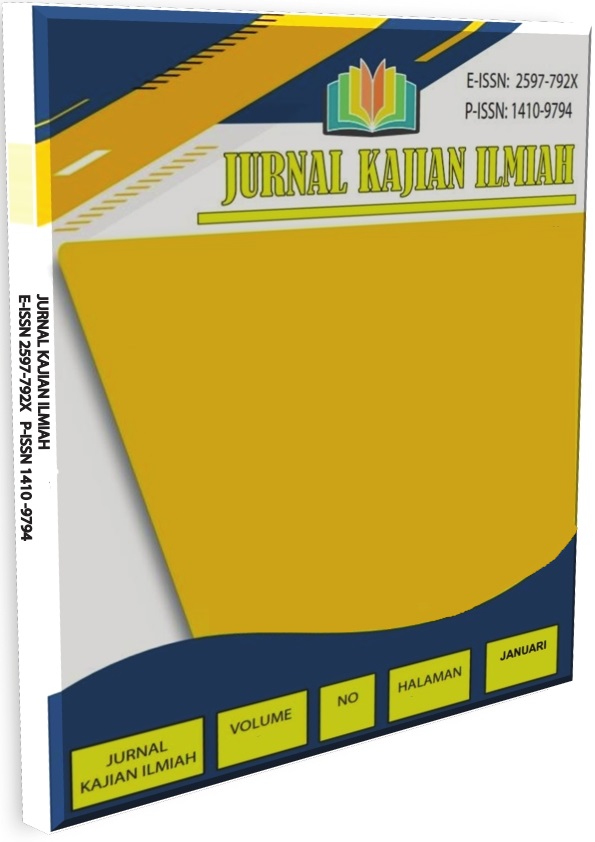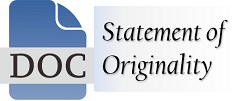Sistem Pakar Pengklasifikasi Stadium Kanker Serviks Berbasis Mobile Menggunakan Metode Decision Tree
DOI:
https://doi.org/10.31599/an383m44Keywords:
Cancer, Decision tree, Expert system, FlutterAbstract
World Cancer Observation states that in Indonesia cervical cancer ranks number two with a total of 9.2% of all cancer cases, cervical cancer which continues to increase in percentage every year due to the addition of new cases. It is important for the public to be aware of the symptoms that arise from cervical cancer. Lack of knowledge about cervical cancer from an early age increases the risk of death. This is because patients know cervical cancer when it is at an advanced stage. So it is important to know the symptoms of cervical cancer patients and their stage level in order to get the appropriate treatment. This research produces an expert system to help the public know the classification of cervical cancer stages. The system development method used is the decision tree method. The classification process uses 200 cervical cancer medical records with 12 symptoms. The decision tree method used has an accuracy value of 85.50%, recall 85.40%, and precision 86.74%. The expert system was developed using the flutter framework. The results of the study are in the form of an expert system mobile application that has been tested black box which is declared valid. This system can help the public know the results of the diagnosis of the symptoms experienced and the stage level accurately to apply the appropriate treatment.
Downloads
References
Anggoro, D. A., & Aziz, N. C. (2021). Implementation of K-Nearest Neighbors Algorithm for Predicting Heart Disease Using Python Flask. Iraqi Journal of Science, 62(9), 3196–3219. https://doi.org/10.24996/ijs.2021.62.9.33
Bode, A. (2017). K-Nearest Neighbor Dengan Feature Selection Menggunakan Backward Elimination Untuk Prediksi Harga Komoditi Kopi Arabika. ILKOM Jurnal Ilmiah, 9(2), 188–195. https://doi.org/10.33096/ilkom.v9i2.139.188-195
Florin Gorunescu. (2011). Data Mining: Concepts, models and techniques (Softcover:). Springer-Verlag Berlin Heidelberg, Intelligent Systems References Library, Vol. 12ISBN: 978-3-642-19720-8.https://books.google.co.id/books?hl=id&lr=&id=yJvKY-sB6zkC&oi=fnd&pg=PP2&dq=Data+Mining:+Concepts,+models+and+techniques&ots=puMzz5wRyG&sig=uhlhI03jPCPmhBf8luoSla3V4zM&redir_esc=y#v=onepage&q=Data Mining%3A Concepts%2C models and techniques&f=false
Hong, X., Harris, C., Brown, M., & Chen, S. (2016). Backward Elimination Methods for Associative Memory Network Pruning. International Journal of Hybrid Intelligent Systems, 1(1–2), 90–98. https://doi.org/10.3233/his-2004-11-211
Kristian, M., Andryana, S., & Gunaryati, A. (2021). Diagnosa Penyakit Tumor Otak Menggunakan Metode Waterfall Dan Algoritma Depth First Search. JIPI (Jurnal Ilmiah Penelitian Dan Pembelajaran Informatika), 6(1), 11–24. https://doi.org/10.29100/jipi.v6i1.1840
Maryam, Setiawan, N. A., & Wahyunggoro, O. (2017). A hybrid feature selection method using multiclass SVM for diagnosis of erythemato-squamous disease. AIP Conference Proceedings, 1867(August). https://doi.org/10.1063/1.4994451
Muchamad Rizqi, B. C. S. A. P. (2018). Literasi Dampak Penggunaan Smartphone Bagi Kehidupan Sosial di Desa Ngadirojo, Kabupaten Pacitan. Journal.Lspr.Edu. http://journal.lspr.edu/index.php/communicare/article/view/35
Pangestu, A., & Tanamal, R. (2020). Rancang Bangun Aplikasi Sistem Pakar Berbasis Mobile Untuk Mendiagnosis Penyakit Kulit Pada Kucing Persia. https://ejournal.ikado.ac.id/index.php/teknika/article/view/279
Patel, H., Sciences, P. P.-I. J. of C., & 2018, U. (2018). Study and analysis of decision tree based classification algorithms. Researchgate.Net, 6. https://doi.org/10.26438/ijcse/v6i10.7478
Pratama, E. B., & Hendini, A. (2019). Sistem Pakar Diagnosa Penyakit Kulit Pada Kucing Berbasis Web Menggunakan Metode Decision Tree. Sistemasi: Jurnal Sistem Informasi, 8(2), 254–264. https://doi.org/10.32520/STMSI.V8I2.459
Rio, S., Sri, E., & Suci, T. (2017). Persepsi tentang Kanker Serviks dan Upaya Prevensinya pada Perempuan yang Memiliki Keluarga dengan Riwayat Kanker. Jurnal Kesehatan Reproduksi, 4(3), 159–169.
Rodríguez, J. D., Pérez, A., & Lozano, J. A. (2010). Sensitivity Analysis of k-Fold Cross Validation in Prediction Error Estimation. IEEE Transactions on Pattern Analysis and Machine Intelligence, 32(3), 569–575. https://doi.org/10.1109/TPAMI.2009.187
Rosa dan Shalahuddin, M. (2016). Rekayasa Perangkat Lunak Terstruktur dan Berorientasi Objek. In Informatika Bandung.
Sagat, N. A., & Purnomo, A. S. (2021). Sistem Pakar Diagnosa penyakit Kanker Serviks Menggunakan Metode Forward Chaining. Jurnal Pendidikan Dan Teknologi Indonesia, 1(8), 329–337. https://doi.org/10.52436/1.jpti.73
Sharma, S. (2016). Cervical Cancer Stage Prediction using Decision Tree Approach of Machine Learning. International Journal of Advanced Research in Computer Science and Communication Engineering, 5(4), 345–348. https://doi.org/10.17148/IJARCCE.2016.5488
Sommerville, I. (2011). Software Engineering (9th ed.; Boston, Ed.). Massachusetts: Pearson Education.












_-_Copy1.jpg)




